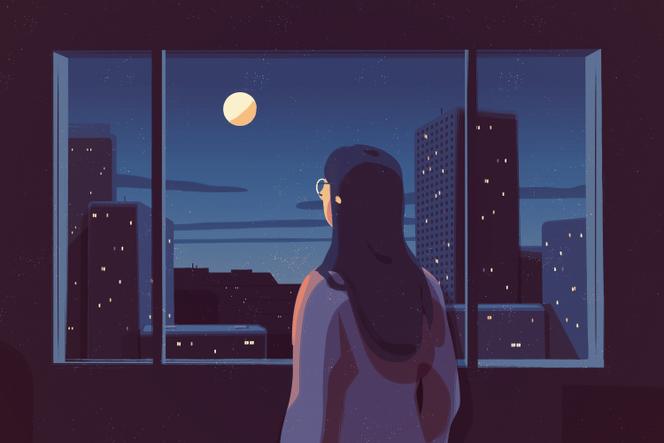


Germain tries not to dwell on it. But the feeling of loneliness that the 21-year-old has been dealing with for years always resurfaces. Just seeing acquaintances spending time with friends on social media "reminds [him] that [he] doesn’t matter much to anyone," explained the young man from a town in Corrèze, central France. Since starting high school – when his school diploma took him to a new town, separating him from his rugby friends and family – his social interactions have dwindled to almost nothing. The Covid-19 crisis, which hit during his junior year, further eroded them.
Today, Germain (who wished to remain anonymous, like the other interviewees) "fortunately" has a girlfriend with whom he can spend part of the week. But he has no close friends, "and that weighs heavily." "I have conversations during the day with classmates or colleagues, but once the weekend or vacations arrive, nobody checks up on me. It's hard to move forward under these conditions. How can you have self-confidence when nobody sees any value in you?" Loneliness has become like a huge elephant in the room, which he rarely talks about. "I don't want people to feel sorry for me and invite me out because of it," explained the young man, who recently graduated with a professional degree.
It's also hard to talk about his isolation at an age generally associated with constant socialization, outings and parties. Yet, far from this idealized image, loneliness is an increasingly common issue among the younger generations, in an increasingly fragmented society. In fact, young people are the hardest hit by this "loneliness epidemic," as American researchers and senior officials described it in 2023.
In France, 62% of young people aged 18 to 24 say they regularly feel lonely, according to a study by the polling organization Institut Français d'Opinion Publique (IFOP) published in January 2024. In June 2023, an annual study by the Fondation Jean Jaurès also revealed that while almost one in two French people (46%) say they feel lonely, this proportion rises to 71% among 18 to 24 year-olds. Yet, while this problem is more closely associated with the elderly (37% of people over 65 are concerned, according to IFOP), "most research and policies on loneliness have too often neglected young people," explained the Fondation Jean Jaurès report.
While some forms of solitude are self-chosen and can be rejuvenating, forced isolation (63% of young people who feel lonely say they suffer from it in the IFOP survey) has major consequences for physical and mental health. In 2023, the World Health Organization (WHO) sounded the alarm on this "threat," using a striking comparison: spending too much time alone is as harmful as "smoking 15 cigarettes a day."
You have 70.47% of this article left to read. The rest is for subscribers only.
